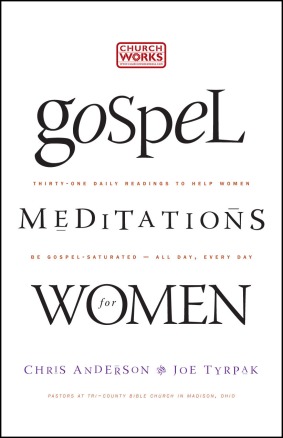Andrew Henderson is leading a weekly study through John Owen’s On the Mortification of Sin at his site, The Puritans Society. Thus, I read chapter 7 today (alas, a week behind) and was moved by the dangers of pressing lost people to fight individual sins. Take some time and read the chapter here, especially noting what Owen calls the “desperate evils” that accompany efforts of convicted but unsaved people to attain mere moral reformation. It’s vital for anyone who interacts with lost people.
Here’s the comment I made at Andrew’s site:
What sobering thoughts Owen provides! If I am aiming at “reform” by which I urge teens to abstinence, drunks to sobriety, deadbeat dads to attentiveness, gossips to silence, etc., I’m doing great damage. As Owen says (on my page 36 and following) there are three “desperate evils” that result:
- Sinners are distracted from their chief business—seeking conversion.
- Sinners who succeed at reformation have their consciences eased illegitimately and made comfortable and self-righteous in their lost state. (He later compares this to helping an enemy out of a field and into a castle. What a great picture.)
- Sinners who fail at reformation lose hope that the gospel can help them at all.
To cite another of his illustrations, we need to stop telling men to mend a hole in their house’s wall even as we fail to tell them that the whole house is on fire.
I fear that we’ve done great harm in calling lost people to live like Christians. And it happens a lot—at our schools, our camps, and our churches. Sinners need to be shown that their great need is their sin, not their sins.
Great, great chapter!
Here’s the idea unpacked and illustrated: If I convince a lost coworker not to curse (or smoke, or whatever), I run the risk (a) of succeeding only at that (so he’ll be the only non-cussing person in hell), (b) of helping him succeed and thus fortifying his self-righteous neglect of Christ, or (c) of discouraging him with his failed attempt. He doesn’t need my encouragement to clean up his language. He needs me to point him to Christ for salvation. Anything less isn’t just an insufficient goal—it’s actually undermining the only sufficient goal, which is conversion. Mere improvement of morals is worse than useless; it’s harmful!
Bottom line: Don’t help damn people through your efforts to improve them! Just give them the gospel.
Filed under: Devotional Thoughts, Evangelism, Fundamentalism, John Owen, Legalism, Ministry Musings, The Gospel | Tagged: Dead Religion, John Owen, Legalism, Moral Reformation, On the Mortification of Sin, The Gospel |










This is especially convicting for me, since my primary ministry right now involves encouraging people to consider their worship philosophy. I’m always careful to insist that no worship philosophy will gain a person merit with God.
I’m especially careful of this when I’m asked to speak to teenagers. In fact, when I’m asked to speak to teens on music, I usually don’t talk about music specifically at all, because I know how easy it would be for someone like that to interpret what I’m saying as some kind of moralism.
It’s a hard balance act to preach holiness like the Bible insists we do, but also be sure that we are not implying that our actions merit us any favor with God whatsoever.
This ties very nicely with your previous post about “ordering your life”. In thinking about the book, you asked, “what is distinctly Christian about this book?”, and the same could be asked of attempts to get people to live more self-controlled lives. Self-control is a virtue of atheists, Satanists, and stoics as well.
I’ve found that most secular atheists I know, tend to have lived more “morally upright” lives than the average Christian. It’s hard to convince someone to repent, when their life’s history doesn’t contain any overwhelming sins or vices. Since I believe that complete repentance is a requirement for salvation, this makes things very difficult in witnessing to these people. The only strategy that comes to mind is one of addressing epistemological error, rather than character flaw or moral vice. I am very open and eager to alternate advice, though.
WARNING: Long hijack by first time poster!!!!
Chris, I am not sure if you remember me from school, but I have been reading/following your blog for a while (ironically, I found you by following links from Dan and the Pyros).
I have been thinking a lot about this topic lately. A lot. I even had opportunity to preach a short series of messages on the dangers of moralism earlier this year at my church. However, I haven’t found my “balance” just yet. Here is where I get “hung up.”
I had a guy in my church last year run for a statewide political office. He lost in a the vastly-D state of WV as a huge R by just a few votes. He is a godly man with a great family. Our state needs more men like Him. Now follow me….wouldn’t his job if elected basically be to get “sinners who don’t want to convert or stop sinning” to actually (by law) stop sinning? Think abortion. In other words, wouldn’t he be trying to “reform” sinners or distracting them from their need of conversion by pointing to the need to stop abortion?
I am convinced beyond any doubt that no abortionist will truly change unless converted (I agree with Owen and your post in essence). That is why our church supports a missionary to our state capitol to only do Bible studies (no lobbying at all…just preaching the Word). But where is the balance in our “political world?”
Thanks Chris for your post. Like Mark, I’ve been thinking about this a lot lately and have been fighting through the same mental and spiritual gymnastics. It is especially difficult when thinking through the place of organizations who have dedicated themselves to fighting what we may consider to be political battles in the name of Christianity. Abortion is a good example of that. Should we be fighting those battles from more of a social standpoint than a christian standpoint? Not sure I’ve arrived at a conclusion there.
The beautiful thing about what you address in your post is that when an someone asks me what I think of a moral issue like abortion, which happened recently, it is easy to turn that into a conversation about the Gospel. The conversation went something like… “Honestly, I’m not all that concerned about convincing you that abortion is wrong because I believe that once you have a proper world view based on a god who is really God then these issues fall into place. If I could convince you to never have an abortion you wouldn’t be any better off than you are now…” The following 2 hours was a discussion about the Gospel, not abortion. It is surprising to someone who believes that a Christian is just a person who adheres to a certain set of regulations and introduces and opportunity to tell them what the Gospel really is.
Jeff, I think you’re right on in how you addressed that. You’re not shrugging about abortion, but you’re addressing the greater need—conversion through confrontation with the gospel. The issues will follow but must not distract.
I do think it’s different for those charged forming or enforcing public policy, per God’s establishment of governing powers in Gen 9, Rom 13, 1 Pet 2, etc. So if you’re a police officer, you address a domestic violence issue as an enforcer of law. If you’re a legislator, you certainly try to legislate from a God-fearing, biblical stance. But that’s the responsibility of Christians legislators, not the church at large. And I think Christians in America in particular miss that point.
FWIW, I covered the politics issue more extensively into two articles which you can find here (pt 1) and here (pt 2).
Blessings, guys. Keep pointing people Christ-ward!
I absolutely agree that churches at large have traded their mandate to evangelize for saving the “American Way.” The thought process seems to be that I would not be able to evangelize if they (whoever they are) weren’t out there protecting my freedom to speak (I guess Peter and the early church didn’t get the memo that said freedom of speech was necessary for evangelism). I read your two links and find myself in great agreement.
I still have some “practical” application questions/banter to throw around, but I will look for a more on topic opportunity so as not to distract from the intent of the original post (which was spot on).
Thanks for the blog…it’s a good read.
Wow–great read! Thanks for that. I guess it kind of boils sin down to its essence–the denial of glory to God. One who rejects God sins no less if he quits cheating (or whatever) if he doesn’t do so to the glory of God.
And I guess, really, the same’s true for a believer, right? I can order my habits to be more pious than a nun’s, but if it’s not out of reverence for God, it’s still sin.
Thank you for pointing this out, Chris–and I appreciate the follow-up thoughts as well. We can’t be reminded of this too often, IMO.
*ha, Becca! Order my “habits”–nun…good one.